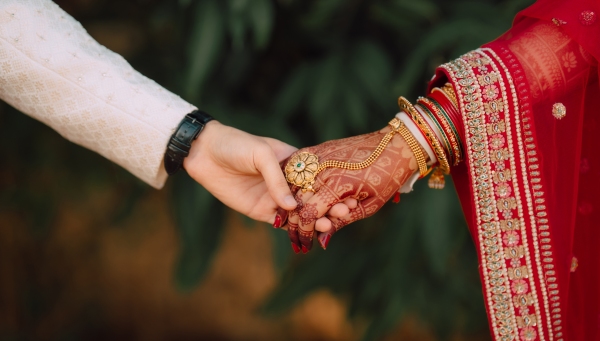The seemingly simple story has become an inexhaustible source of inspiration for literary and cinematic works over the years. And yet, it is still life that inspires art most strongly; after all, many remarkable love stories are the best confirmation of the thesis that affection overcomes obstacles, boundaries and barriers – including those of language. The moment of formalizing a relationship is most often a chance for an exceptional meeting of families and an exploration of cultural differences and curiosities… but also a considerable communication challenge.
Organizing a wedding and a wedding party is a special time, although often full of tension. The number of issues that require our attention before this special day can be overwhelming, and in the case of organizing a meeting where cultures and languages collide, getting everything just right can be a real test of strength. Why, when organizing a wedding with a foreigner, can’t we forget about a certified translator? And what documents are needed to get married with a foreigner in Poland? These are just some of the questions that arise in connection with this event.
Translating documents for marriage with a foreigner – what is needed?
Despite what you may think, the documents that both parties must submit – both the partner who is a Polish citizen and the foreigner – are not that different. You will need an abstract copy of your birth certificate, a certificate stating that there are no objections to the marriage (in Poland, these are issued by the Registry Office, and the cost of a marital status certificate is PLN 38), a valid passport, and a statement on the surname after the marriage. If one of the parties is a widower/widow or a divorcee, it is necessary to present such documents as the death certificate of the spouse or a court judgment on the divorce. The difference is that in the case of certificates issued abroad, a certified translation of the marriage documents is necessary.
The bride and groom who decide to have a concordat wedding will also need to present certificates of baptism, first communion and confirmation, as well as a certificate confirming the completion of Pre-Cana course. However, these are standard documents and preparing their translations is not a difficult nor time-consuming task.
Ceremony and vows in English – why do we need an interpreter at a wedding?
Most often we invite an English interpreter, but it is best to get the help of a person who is fluent in Polish and the native language of a spouse (to be). Interpretation is essential during the official part, when the young couple takes their vows. In what language will it be done? Most often, the interpreter will directly interpret the words of the official and then the foreigner entering into a marriage. This way, each party expresses their vows in their own language.
What about the wedding party? Nowadays, many people speak conversational English, but in a situation where half of the wedding guests speak a niche language, it is worthwhile to ensure their comfort and freedom of communication. An interpreter at the wedding will be an invaluable help; thanks to them, guests will easily connect at the beginning of the event and feel more at ease in each other’s company. This is certainly an idea worth considering!
Wedding… and now what? Translation in the Office for Foreigners
Although the wedding ceremony itself is often the culmination of lengthy preparations, in some cases it is not the end of the formalities regarding a foreigner’s stay in Poland. A wedding does not automatically confer on a foreigner rights equivalent to those of a citizen, but it significantly simplifies the possibility of working legally or obtaining a residence permit in the Republic of Poland. It also makes it possible to start procedures whose ultimate goal is to obtain citizenship; one of the stages of this process is interviews at the office. Here the situation allows more flexibility – a foreigner who speaks Polish fluently can do without an interpreter. The presence of a certified interpreter is also not required; it is entirely sufficient that the interpretation be handled by a person who speaks Polish and the petitioner’s native language fluently.
Interpreters working with Alingua have already accompanied many couples on their special day, making sure that everything runs smoothly and seamlessly. We will be happy to assist you in preparing certified translations that will help you put the finishing touches on your preparations, as well as provide faithful and reliable interpretation during the ceremony (click here).





